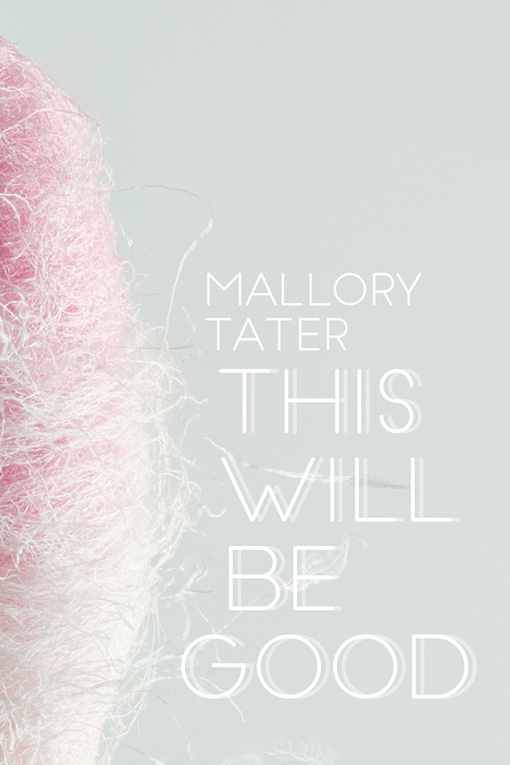Feverish: In Conversation with Mallory Tater

Vancouver poet Mallory Tater’s debut poetry collection, This Will Be Good, tells the story of a young woman’s burgeoning femininity as it brushes up against an emerging eating disorder. As the difficulties of her disease reveal themselves, they ultimately disrupt family relationships and friendships. These poems deftly bear witness to the performance of femininity and gender construction to reveal the shrinking mind and body of a girl trying to find her place in the world, and whose overflowing adolescent hope for a future will not subside.
In a recent review in the Toronto Star, Barb Carey writes that This Will Be Good has “a burgeoning appetite for life, and a hunger for the sustenance that can be found in love and meaningful connection.” Sarah Gerard, author of Binary Star and Sunshine State, adds that “these stories have a feeling of being passed down, kept secret, and slipped in notes and gestures between intimates whose closeness is felt on the skin.”
Book*hug intern Mary Ann Matias recently sat down with Mallory to discuss her highly anticipated debut.
❧
Mary Ann Matias: Can you speak to the editorial process? Did the manuscript undergo substantial changes over the course of its development? Is the finished book drastically different from what it was at the start of your project?
Mallory Tater: This Will Be Good was part of my Masters thesis, so I was lucky that the manuscript had a lot of folks caring for it over the course of its development. Rhea Tregebov was my primary advisor, but I also had Helen Guri as an editor for the final stages. I also have to thank Kayla Czaga, Nancy Lee, Keith Mallard, Curtis LeBlanc, and Adèle Barclay for edits, support and feedback. The book isn’t too different from how it started in a thematic way, but the poems are much cleaner and more polished than my initial messy and vague stream of consciousness approach.
MM: What are some of your favorite books or genres? Did any of them influence this book?
MT: My favourite genres are verse novels, feminist body horror and feminist dystopia. I wouldn’t say any of these genres really directly influenced my poetry collection (though there are probably some parallels), but writing poetry and exploring the performance of femininity has made me a more thoughtful, curious reader and writer of these important, boundary-pushing genres.
MM: What are some other influences for your work, besides writing? Music, visual culture, science, etc.?
MT: That’s such an interesting question! I guess I am pretty passionate about etymology and linguistics. The shifting and expansion of language to creative inclusivity or deeper, more specific meaning for new or existing words is something I find very beautiful and comforting. I like to learn origins of colloquialisms/idioms and names. I dorkily love wordplay and puns, too (which most of my friends can confirm!). I am also an avid television watcher and find the conventions of that genre of writing to be very compelling in its brevity, continuity and reliance on the visual. Poetry holds that kind of emphasis on the visual, too, which is maybe why I like them both so much.
MM: If you had to describe your book in one word, what would it be and why?
MT: Feverish? I sort of feel the book holds a lot of different emotional temperatures and I think the pacing is kind of fast or frantic, at times. And it has moments of physical and mental illness, which can feel fiery and hazy in themselves.
MM: What are you reading now, and what’s next on your reading list?
MT: I just finished Joelle Barron’s poetry collection Ritual Lights, the Skins UK tele-novel (see? I love television!), and I am reading Elena Ferrante’s My Brilliant Friend. Next on my list is Educated, a memoir by Tara Westover.
❧
Order your copy of This Will Be Good here.

Credit: Allie Kenny
Mallory Tater is a writer from the traditional, unceded territories of the Algonquin Anishnaabeg Nation (Ottawa). Mallory’s poetry and fiction have been published in literary magazines across Canada such as Room Magazine, CV2, The Malahat Review, The Fiddlehead, The New Quarterly, Carousel, Prism International and Arc Magazine. She was shortlisted for Arc Magazine’s 2015 Poem of The Year Contest, The Malahat Review’s 2016 Far Horizon’s Contest and Room Magazine‘s 2016 Fiction and Poetry Prizes. She was the recipient of CV2’s 2016 Young Buck Poetry Prize. She is the Publisher of Rahila’s Ghost Press, a poetry chapbook press. She lives in Vancouver.

